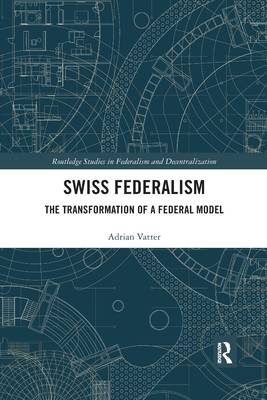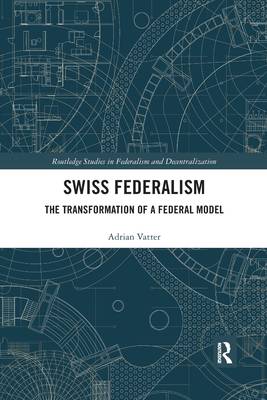
- Retrait gratuit dans votre magasin Club
- 7.000.000 titres dans notre catalogue
- Payer en toute sécurité
- Toujours un magasin près de chez vous
- Retrait gratuit dans votre magasin Club
- 7.000.0000 titres dans notre catalogue
- Payer en toute sécurité
- Toujours un magasin près de chez vous
Description
The political and economic crisis of EU integration has made it increasingly apparent how challenging it is to bring together different sovereign cultures, languages and regions into a single political system. Switzerland - being one of the three classic federations in the world - can provide insights, particularly in relation to the accommodation of cultural, linguistic, religious and regional diversity, which can help tackle contemporary challenges.
This book describes and analyses the characteristics, institutions, and processes of Swiss federalism, along with its combination of stability and change. It presents a comprehensive study of the federal system of Switzerland, where it comes from, how it operates, and the way it has changed of late. This will allow readers to appreciate the specific and current answers the Swiss case offers to the main questions raised by wider federal research.
This text will be of key interest to scholars and students in federalism and territorial politics, political institutions, local and regional government studies, multi-level governance and more broadly to European and comparative politics.
Spécifications
Parties prenantes
- Auteur(s) :
- Editeur:
Contenu
- Nombre de pages :
- 304
- Langue:
- Anglais
- Collection :
Caractéristiques
- EAN:
- 9780367904265
- Date de parution :
- 09-12-19
- Format:
- Livre broché
- Format numérique:
- Trade paperback (VS)
- Dimensions :
- 163 mm x 231 mm
- Poids :
- 408 g

Les avis
Nous publions uniquement les avis qui respectent les conditions requises. Consultez nos conditions pour les avis.






